SALT, Balqa — A 30-minute drive
from the capital Amman is the historical Salt City, which was
recently listed as a UNESCO World Heritage Site, and once you arrive at the center of the city,
you will feel like you’ve traveled 200 years back in time, to a period when the
Ottomans ruled the city.
اضافة اعلان
The beauty of Salt’s historical
buildings is hard to miss, and it won’t take you long to experience the
generosity and the hospitality of the locals who live in Salt, who welcome you into
every place and are more than happy to provide to help and show you around.
Once you arrive, you should
visit Al-Gherbal Restaurant for a traditional breakfast of hummus, falafel,
freshly baked bread, and many other delicious
dishes, where you can recharge
after your journey and get a taste of the history of the place, especially since
the owner of the restaurant, Amer Dabbas, has maintained the historical decor
of the building.
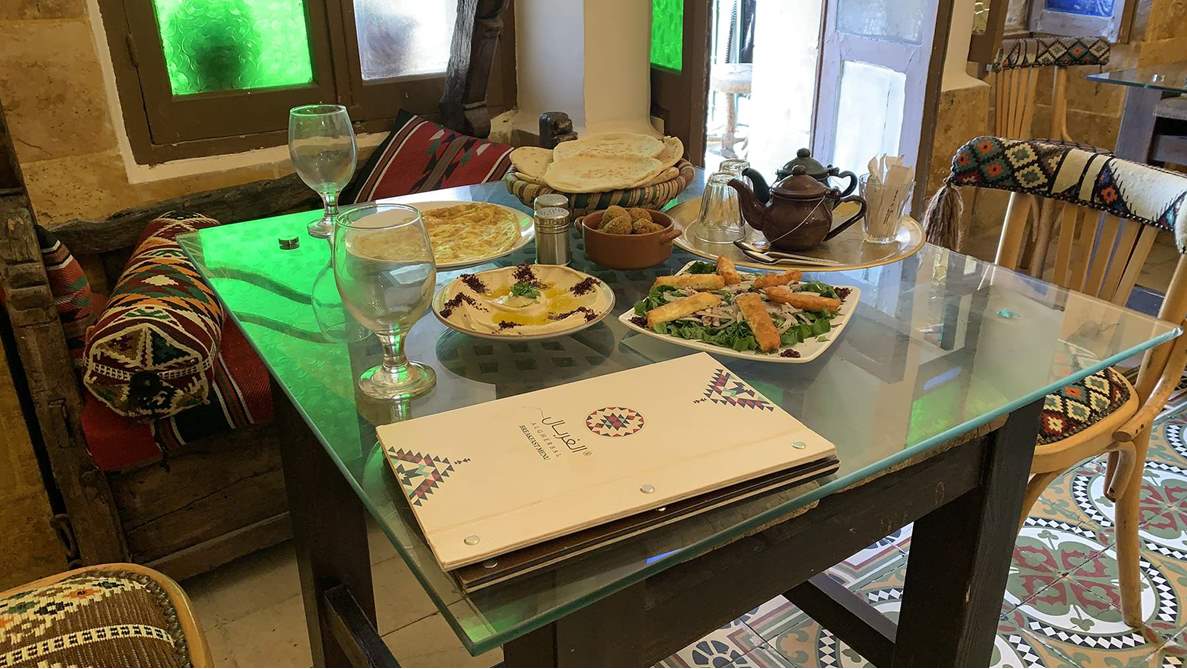 Al-Gherbal Restaurant. (Photo: Nabeeh Dababneh/Jordan News)
Al-Gherbal Restaurant. (Photo: Nabeeh Dababneh/Jordan News)
Workers at Al-Gherbal will also
give you recommendations on places to visit in the city.
“In 2017 we renovated the house.
The ground floor was built in 1827 by the
Ottomans, and the second floor
belonged to Al-Basha Saeed Suleme, so we turned it into a bakery and a
restaurant, while keeping its décor,” Nizar Hamdan, the manager of Al-Gherbal Restaurant,
noted.
After your meal at Al-Gherbal,
you might want to see the Al-Salt Museum, where you will find ruins and
skeletons that belong to those who lived in the city years ago. The sheer number
of items on display is overwhelming.
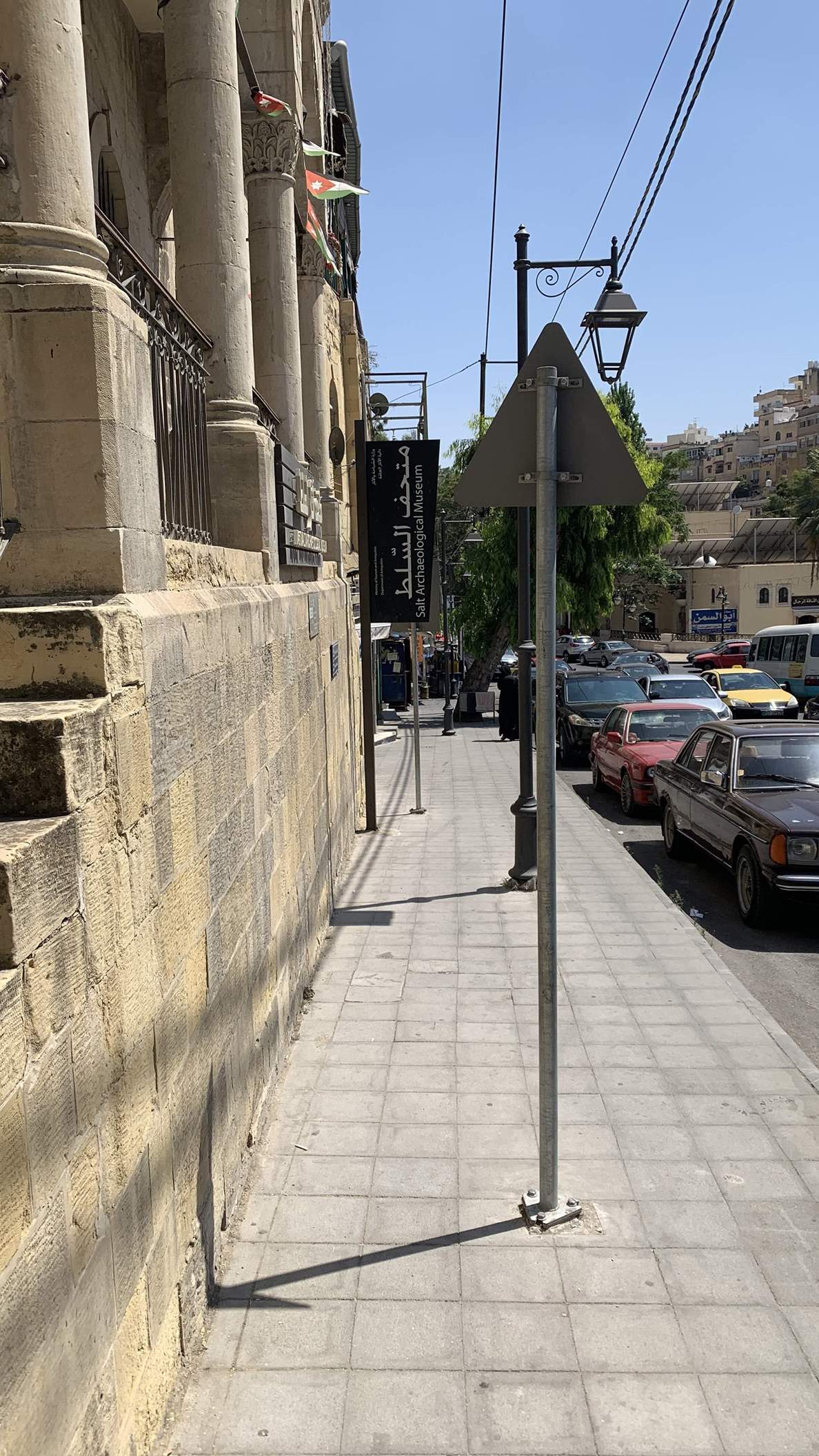 Al-Salt Museum. (Photo: Nabeeh Dababneh/Jordan News)
Al-Salt Museum. (Photo: Nabeeh Dababneh/Jordan News)
From the museum, you might want
to abandon your car and enjoy a nice walk towards Al-Hammam (Bath) Street,
named after the old bath located on the street. The road was established in
1880, and is famous for its yellow-stone buildings, built out of bricks from
Nablus.
Every turn on the yellow draped
street will take you into a new place with its own historical story, especially
since most of the markets have made minimal or no changes to the shops,
preserving their historical value. At the end of the street you will find Saint
George Al-Khader Church, dating back to 1682.
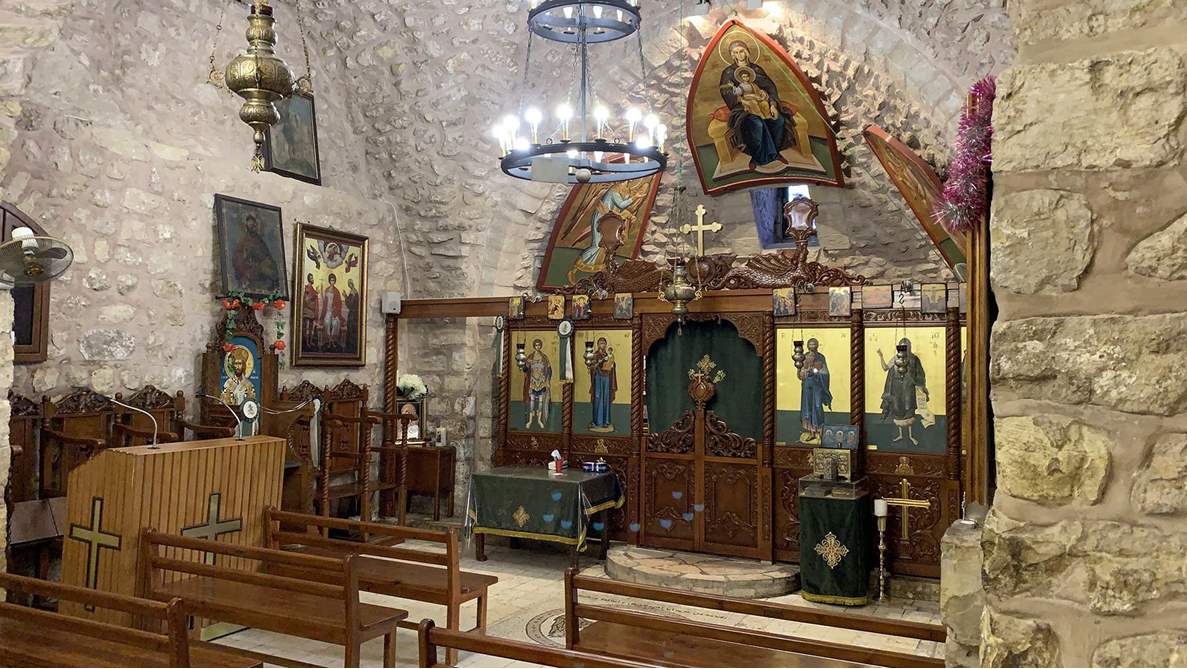 Saint George Al-Khader Church. (Photo: Nabeeh Dababneh/Jordan News)
Saint George Al-Khader Church. (Photo: Nabeeh Dababneh/Jordan News)
“Saint George appeared in a
cave in the church and asked for the church to be built in this place, therefore
this place is very holy, in-fact, it’s one of the holiest places in the region,”
the church keeper told visitors.
In Al-Hammam Street, you will
find many shops that sell collectibles from traditional art pieces, antiques,
recycled items, to gifts, where you can buy many souvenirs.
In one particular shop that stands
out, 87Design, you will find art pieces that were made of recycled materials,
such as twigs, wooden pallets, and ropes that are turned into macrame wool,
lamps, and home furniture by the owner of the shop, Saif Jeghbir, who turned
his grandparents’ house, which they bought back in 1916 from the Ottomans, into
a shop.
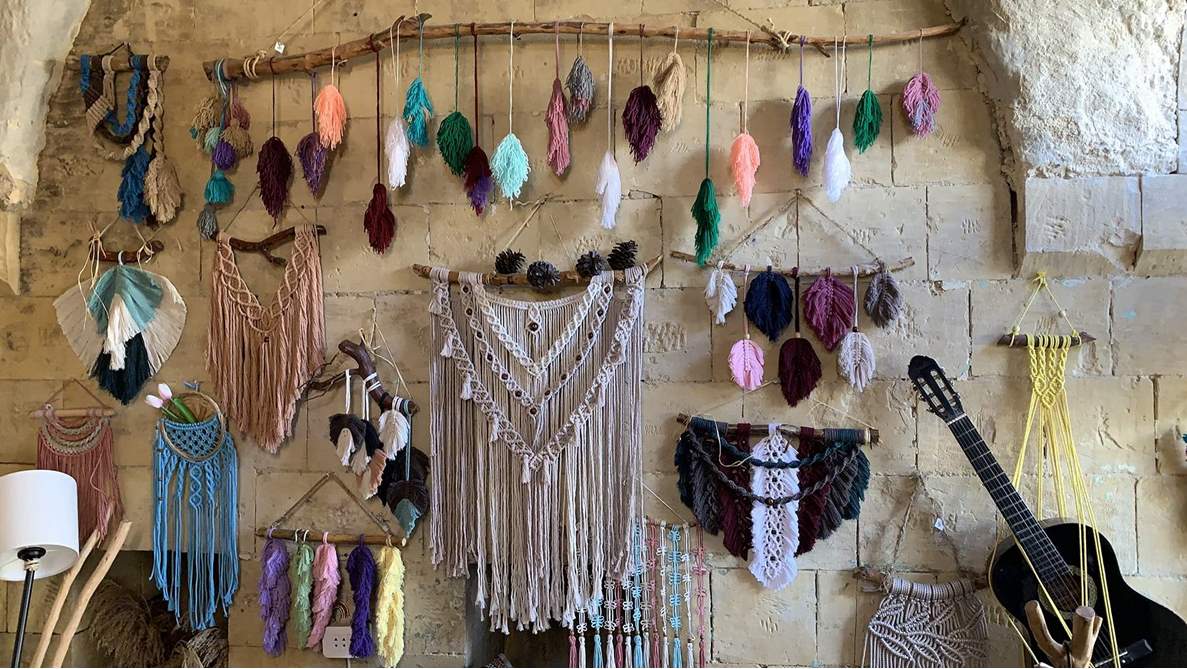 87Design. (Photo: Nabeeh Dababneh/Jordan News)
87Design. (Photo: Nabeeh Dababneh/Jordan News)
“The making of macramé dates
back to 13th-century Arab sailors, who used it in decorating their ships, besides
selling it to the lands they reached,” Saif Jeghbir the owner of 87Design,
explained.
Keep a close eye on the details
while you tread the street, because one of the stairs will lead you to an alleyway
where a scene of how the old residents of Salt lived and dressed is displayed.
After a long walk in Al-Hammam
Street, you might need to recharge your energy with the traditional local desert
Al-Shebeyat. The native Salt dish is made of baked dough with cheese or nuts
and soaked with syrup.
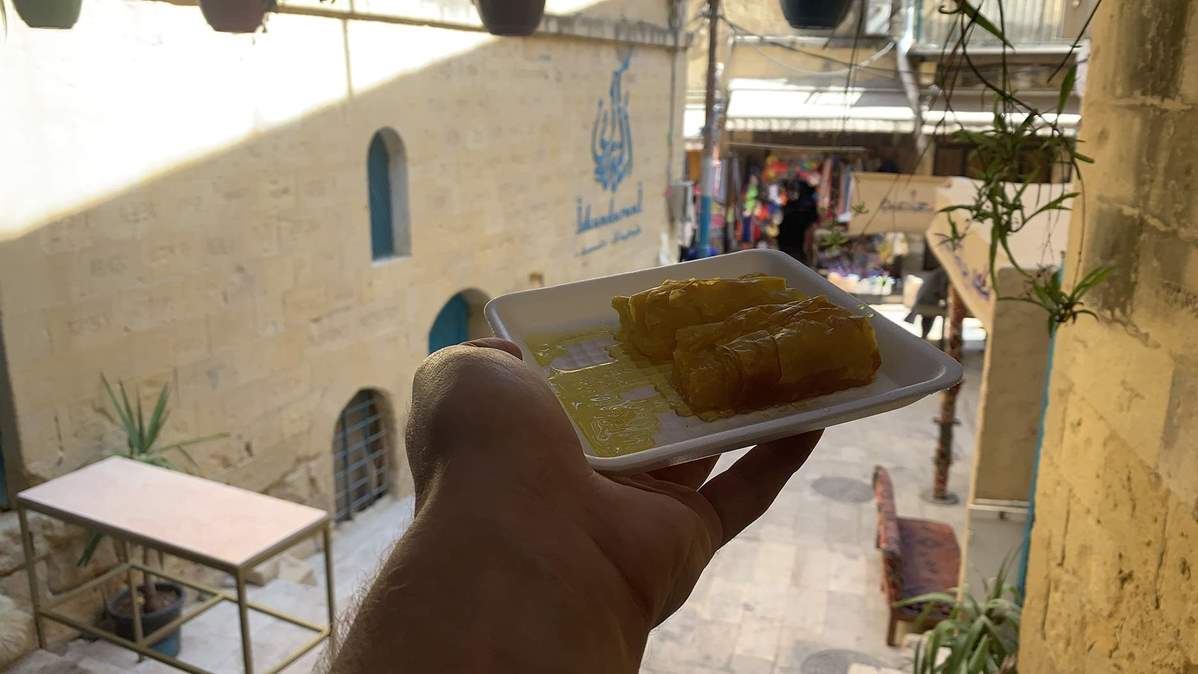 Al-Shebeyat. (Photo: Nabeeh Dababneh/Jordan News)
Al-Shebeyat. (Photo: Nabeeh Dababneh/Jordan News)
You will find the dish in many
of the shops, but Al-Iskandarani coffee shop is recommended. The place is
housed in a building that was divided 200 years ago into a wool warehouse, a
stable, and a banana warehouse, which was designed in a way that allowed green
bananas to be stored there until it becomes yellow.
The city of Salt is known for its
mountainous topography, providing for an outstanding view from various spots,
but the best way to end your day in the city is by watching the sunset from
AL-Sitteen Street, where you can get a magnificent view of the West Bank from
any spot on the street. Many restaurants and coffee shops is located on the top
with a clear view of the scene, where you can enjoy your dinner while watching
the sun dip behind the mountains.
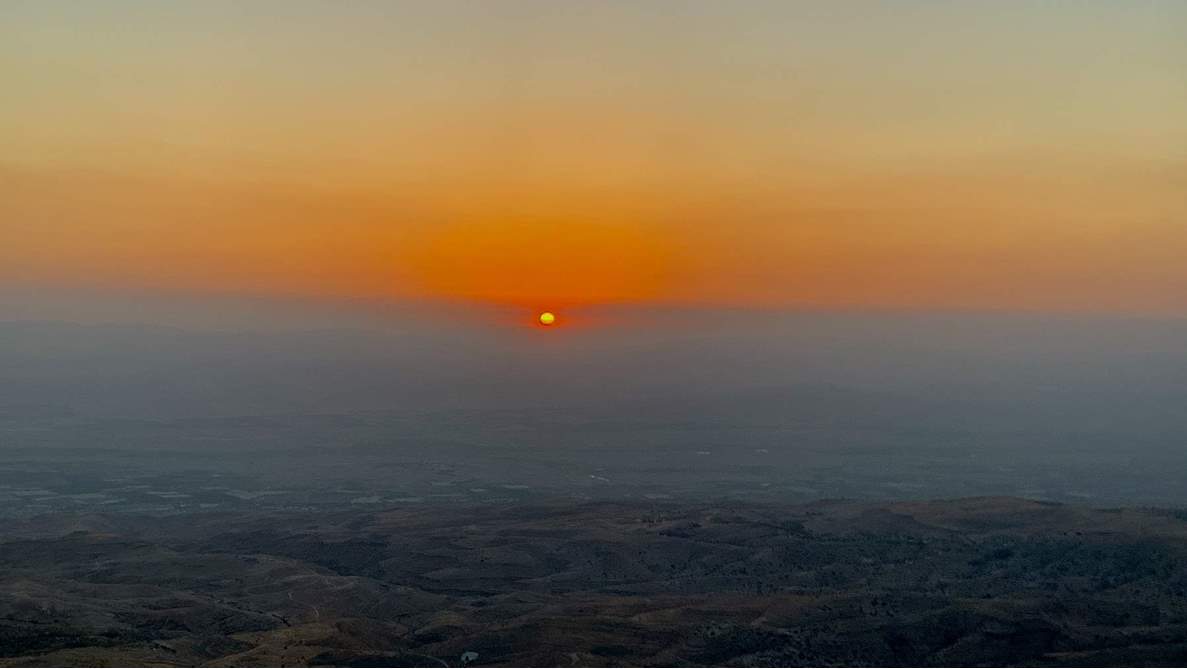 Sunset at the AL-Sitteen Street. (Photo: Nabeeh Dababneh/Jordan News)
Sunset at the AL-Sitteen Street. (Photo: Nabeeh Dababneh/Jordan News)
One of the recommended places
is Tallet Al-Quds; the restaurant provides an outdoor setting and an indoor one,
which has a full panoramic view, with live oud music, In addition to delicious
Arabian dishes.
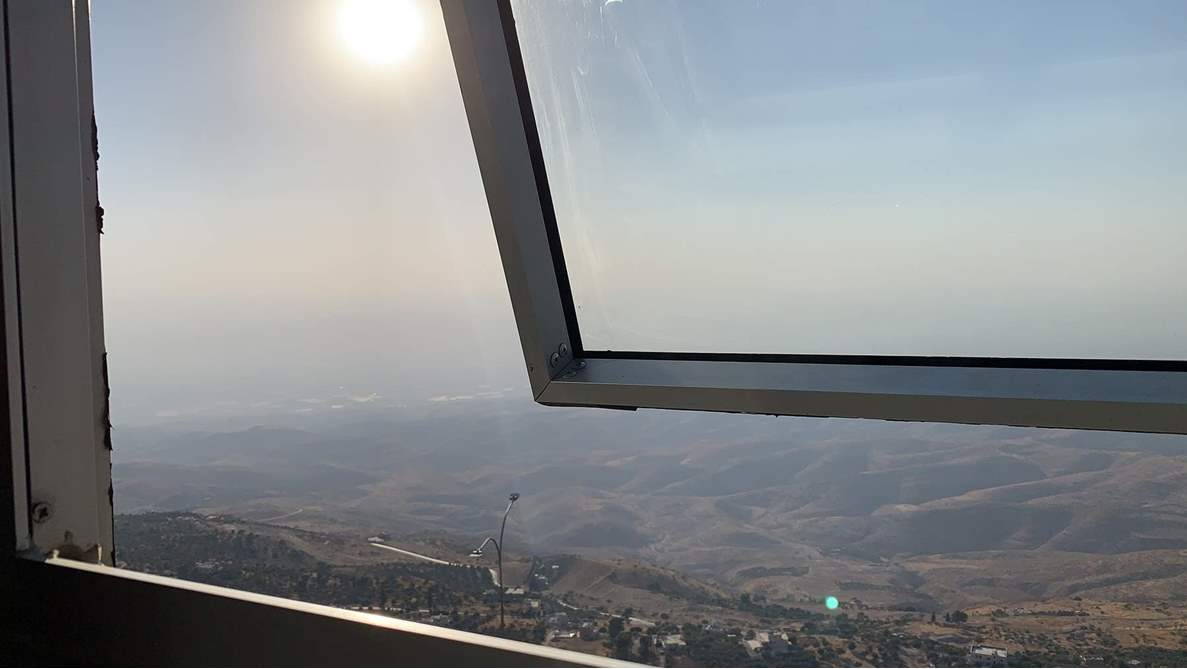 Tallet Al-Quds. (Photo: Nabeeh Dababneh/Jordan News)
Tallet Al-Quds. (Photo: Nabeeh Dababneh/Jordan News)
Read more Lifestyle



